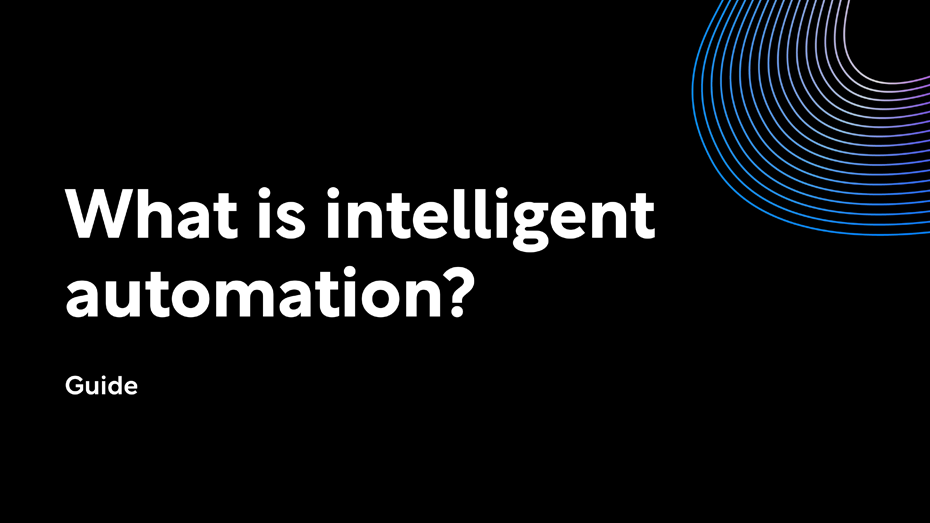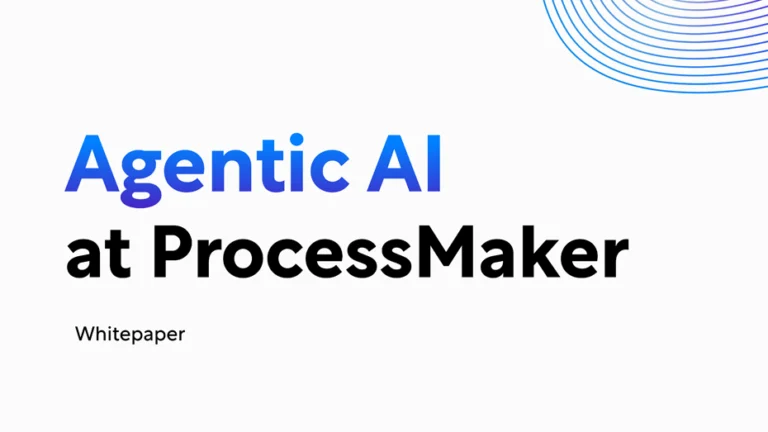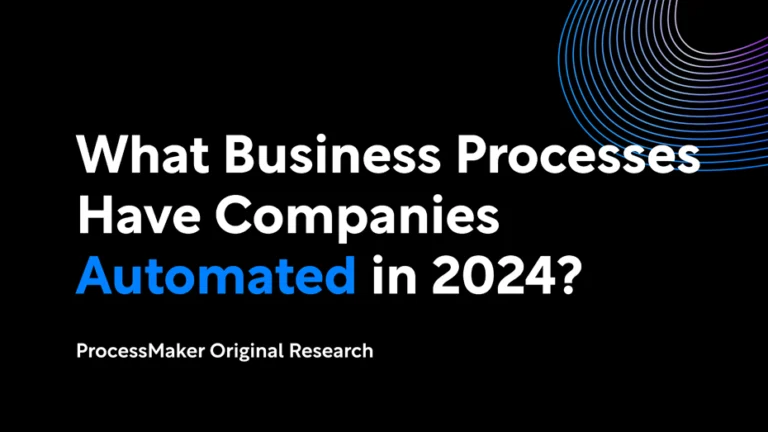Die Automatisierung hat sich zu einem zentralen Thema im Geschäftsbetrieb entwickelt. Viele Unternehmensleiter suchen nach Möglichkeiten, die Automatisierung als Wettbewerbsvorteil zu nutzen, während andere über ihre Auswirkungen auf die Belegschaft nachdenken.
In diesem Leitfaden befassen wir uns eingehend mit dem Thema der intelligenten Automatisierung und gehen auf die wichtigsten Themen, Beispiele und Best Practices ein, um Führungskräften dabei zu helfen, diese Chance zu verstehen und zu nutzen.
Was ist intelligente Automatisierung?
Intelligente Automatisierung ist der Einsatz von Technologien wie künstlicher Intelligenz (KI), robotergestützter Prozessautomatisierung (RPA) und maschinellem Lernen zur Automatisierung von alltäglichen, sich wiederholenden Aufgaben. Intelligente Automatisierung rationalisiert Prozesse, senkt Kosten und verbessert die Effizienz von Geschäftsabläufen.
Technologien wie ChatGPT und Midjourney haben unser Leben in so kurzer Zeit völlig verändert. Aber die Automatisierung ist keine unerprobte Technologie, die sich zum ersten Mal die Beine vertritt. RPA-Bots zum Beispiel stammen aus den 2000er Jahren. Unternehmen nutzten sie, um einfache Zahlen zu berechnen und Excel-Tabellen mit aus dem Internet gesammelten Inhalten zu füllen. Heute läutet die künstliche Intelligenz eine neue Ära der Automatisierung ein, indem sie die beiden Technologien zu einem neuen Werkzeug vereint: der intelligenten Automatisierung.
Obwohl die Interpretationen von intelligenter Automatisierung zwischen Experten und Organisationen sehr unterschiedlich sind, kann man davon ausgehen, dass IA von verschiedenen Technologien angetrieben wird:
- Künstliche Intelligenz
- Maschinelles Lernen
- Computer Vision
- Robotergestützte Prozessautomatisierung
- Intelligente Dokumentenverarbeitung (IDP) und Verarbeitung natürlicher Sprache (NLP)
Durch die Kombination dieser Technologien entsteht ein hochentwickeltes System, das komplexe Aufgaben bewältigen kann - ohne menschliches Zutun.


